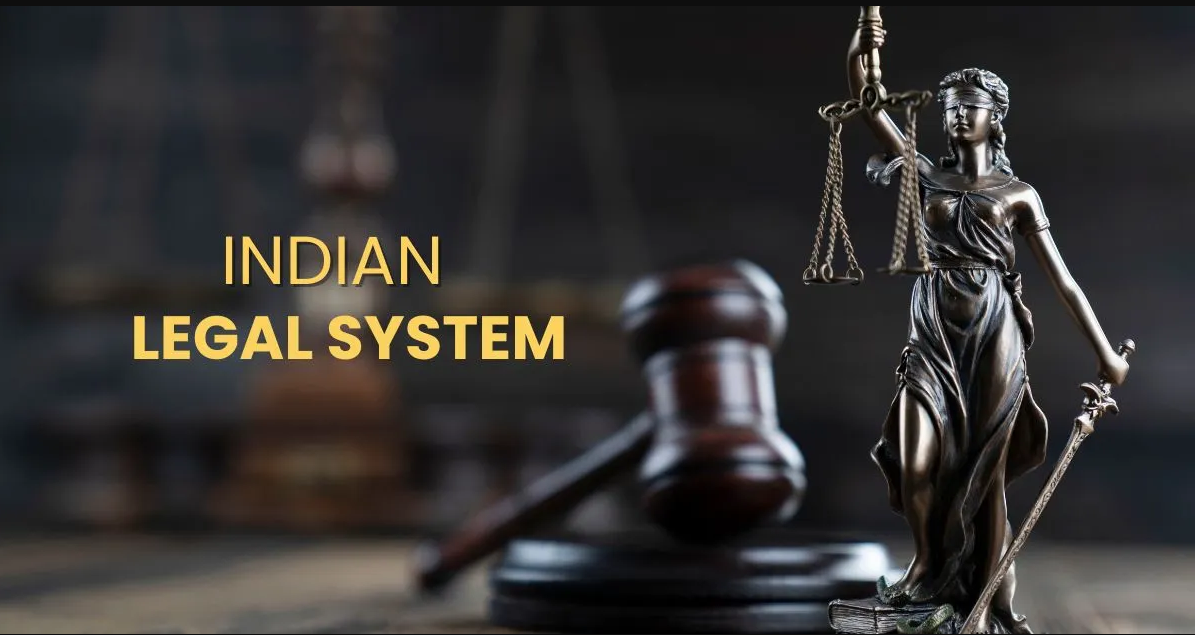The legal system is the backbone of any functioning democracy, and India’s legal framework is no different. As one of the world’s largest democracies, India has a complex, multifaceted legal structure that governs every aspect of our daily lives. Whether you’re dealing with personal issues, business disputes, or any other legal matter, it’s essential to understand how the legal system in India works.
In this blog post, we will provide a brief yet comprehensive overview of the Indian legal system, focusing on the most important aspects that every citizen should know.
- The Constitution of India: The Supreme Law
The Constitution of India, adopted on January 26, 1950, is the supreme law of the land. It is the foundation upon which India’s legal system is built. It outlines the structure of government, the rights of citizens, and the duties of various authorities.
The Constitution divides the powers and responsibilities of the government into three branches:
- Legislative (Parliament): Responsible for making laws.
- Executive (President, Prime Minister, and Government officials): Responsible for implementing and enforcing laws.
- Judiciary (Courts): Responsible for interpreting the laws and ensuring justice.
The Constitution guarantees fundamental rights to every citizen, such as the right to equality, freedom of speech, protection from discrimination, and the right to a fair trial.
- Types of Courts in India
India’s legal system includes a hierarchy of courts that deal with various types of cases. They are primarily divided into:
- Supreme Court: The highest judicial authority in India, located in New Delhi. It has the power to hear appeals from lower courts, constitutional cases, and matters of national importance.
- High Courts: There are 25 High Courts in India, one in each state or union territory. They have jurisdiction over matters within their territory and can hear appeals from lower courts.
- District Courts: These are the lowest level of courts where most civil and criminal cases are initially heard. District Courts are further divided into Civil Courts and Criminal Courts.
- Subordinate Courts: These include Magistrate Courts and Civil Judge Courts, which are found at the grassroots level. They handle day-to-day legal matters like petty crimes, family disputes, and civil cases.
- Types of Laws in India
The Indian legal system includes several types of laws, including:
- Civil Law: Deals with disputes between individuals, such as property disputes, contracts, family law, and inheritance.
- Criminal Law: Governs offenses that are considered crimes against society, such as theft, assault, and murder. The Indian Penal Code (IPC) is the principal criminal law statute.
- Constitutional Law: Refers to the interpretation and application of the Constitution. It covers rights like freedom of speech, equality, and personal liberty.
- Family Law: Governs issues related to marriage, divorce, adoption, and inheritance. It varies based on personal laws, such as Hindu, Muslim, Christian, and others.
- Corporate/Business Law: Regulates the formation, operation, and dissolution of businesses, including the Companies Act and laws related to intellectual property, taxation, and labor.
- Environmental Law: A relatively newer area of law that deals with protecting the environment through regulations, rules, and policies like the National Green Tribunal (NGT).
- How Legal Procedures Work in India
Navigating the legal process in India can be daunting, but understanding the basic steps can help simplify things:
- Filing a Case: To start legal proceedings, one must file a petition, complaint, or FIR (First Information Report) depending on the nature of the case. An advocate (lawyer) helps draft and file the documents in the relevant court.
- Investigation: In criminal cases, once an FIR is filed, the police begin an investigation. They gather evidence, question witnesses, and prepare a charge sheet.
- Trial: After investigation, the case proceeds to trial, where evidence is presented, and witnesses testify. The judge then pronounces a verdict.
- Appeal: If a party is dissatisfied with the judgment, they can appeal to a higher court. The process may continue until the matter reaches the Supreme Court.
- Rights of Indian Citizens
One of the most important aspects of the Indian legal system is the protection of individual rights. The Constitution guarantees several fundamental rights to citizens, such as:
- Right to Equality (Article 14): No person shall be discriminated against on the grounds of religion, race, caste, sex, or place of birth.
- Right to Freedom (Articles 19-22): Includes the right to free speech, freedom to assemble, and protection against unlawful detention.
- Right to Life and Personal Liberty (Article 21): Guarantees that no one shall be deprived of their life or personal liberty except according to the procedure established by law.
- Right to Constitutional Remedies (Article 32): Allows individuals to approach the Supreme Court for enforcement of their fundamental rights.
- The Importance of Legal Aid in India
In India, not everyone can afford expensive legal representation. However, the Constitution guarantees the right to legal aid, which means that people who cannot afford lawyers can be provided with free legal services. The Legal Services Authorities Act, 1987 created a framework for this system, including the National Legal Services Authority (NALSA).
- The Role of a Lawyer in India
A lawyer plays a crucial role in helping individuals and organizations navigate the legal system. Lawyers represent their clients in courts, offer legal advice, draft legal documents, and help resolve disputes. If you’re facing a legal issue, it’s important to consult an experienced lawyer who can guide you through the complexities of Indian law.
Conclusion: The Legal System is Here to Protect You
India’s legal system, though complex, is designed to protect the rights and interests of its citizens. By understanding the basic structure and process of the legal system, you can better navigate any legal issues that may arise in your life. Whether it’s a family dispute, a criminal case, or a business issue, having a qualified lawyer by your side can make all the difference.
